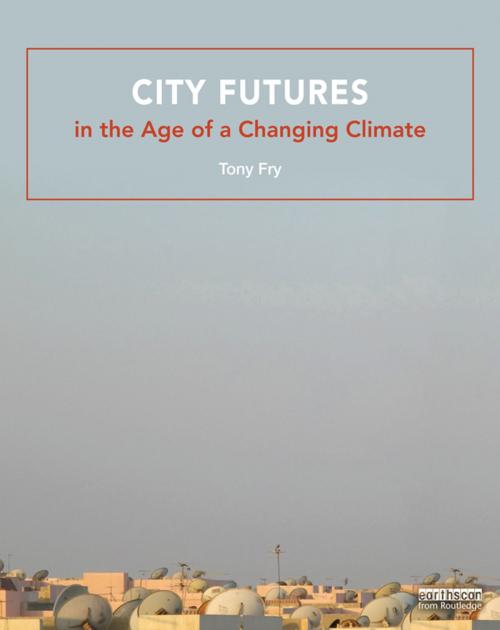City Futures in the Age of a Changing Climate
Nonfiction, Art & Architecture, Architecture, Planning| Author: | Tony Fry | ISBN: | 9781317659013 |
| Publisher: | Taylor and Francis | Publication: | August 27, 2014 |
| Imprint: | Routledge | Language: | English |
| Author: | Tony Fry |
| ISBN: | 9781317659013 |
| Publisher: | Taylor and Francis |
| Publication: | August 27, 2014 |
| Imprint: | Routledge |
| Language: | English |
This book goes beyond current ways that the impact of climate change upon the city are understood. In doing so it addresses climate in a variety of its connotations. It looks to the nomadic behaviour patterns of the past for lessons for today’s population unsettlement, and argues that as human survival will increasingly be linked directly to movement, the city can no longer be defined as a constrained space. The impacts of climate change must be understood as a combination of the actual and the expected, and have to be addressed both practically and culturally.
City Futures in an Age of Changing Climate looks at how cities can adapt and respond to the unsustainable conditions they are now facing. The book considers possible post-urban futures, exposing a range of very different urban forms, and addresses the concept of fragmentation; the breaking up of any coherent economic or cultural nucleic urban spaces.
Urban planners, designers, development practitioners, and anyone seeking to understand what the future is likely to look like for our cities, and how to prepare for it, will find this an essential read.
This book goes beyond current ways that the impact of climate change upon the city are understood. In doing so it addresses climate in a variety of its connotations. It looks to the nomadic behaviour patterns of the past for lessons for today’s population unsettlement, and argues that as human survival will increasingly be linked directly to movement, the city can no longer be defined as a constrained space. The impacts of climate change must be understood as a combination of the actual and the expected, and have to be addressed both practically and culturally.
City Futures in an Age of Changing Climate looks at how cities can adapt and respond to the unsustainable conditions they are now facing. The book considers possible post-urban futures, exposing a range of very different urban forms, and addresses the concept of fragmentation; the breaking up of any coherent economic or cultural nucleic urban spaces.
Urban planners, designers, development practitioners, and anyone seeking to understand what the future is likely to look like for our cities, and how to prepare for it, will find this an essential read.















